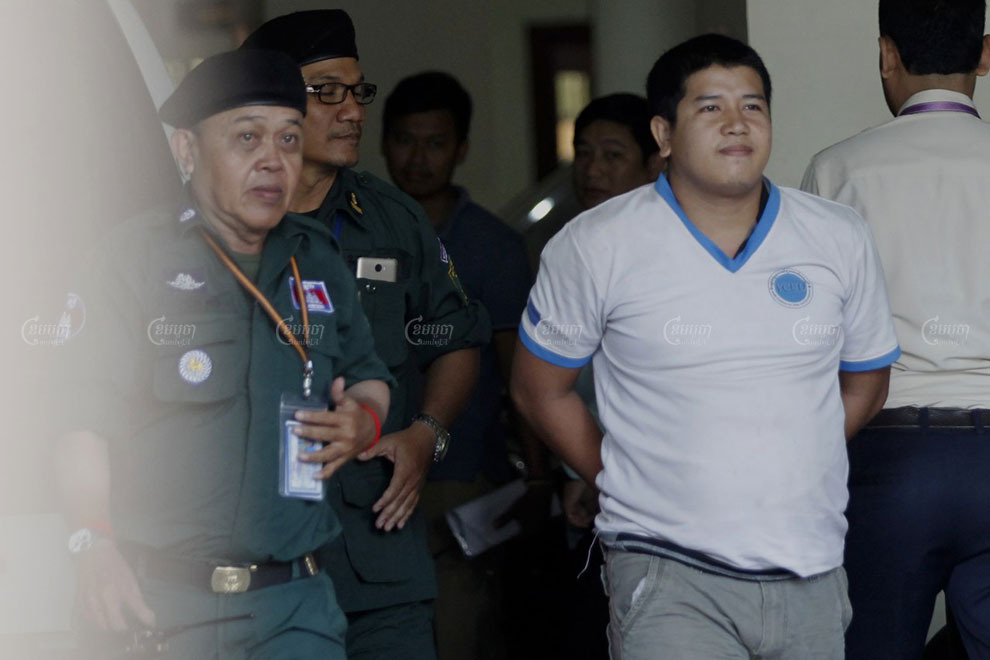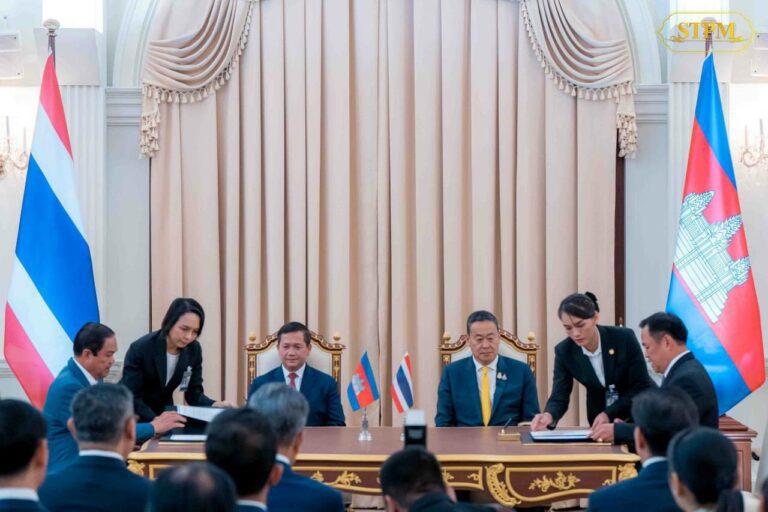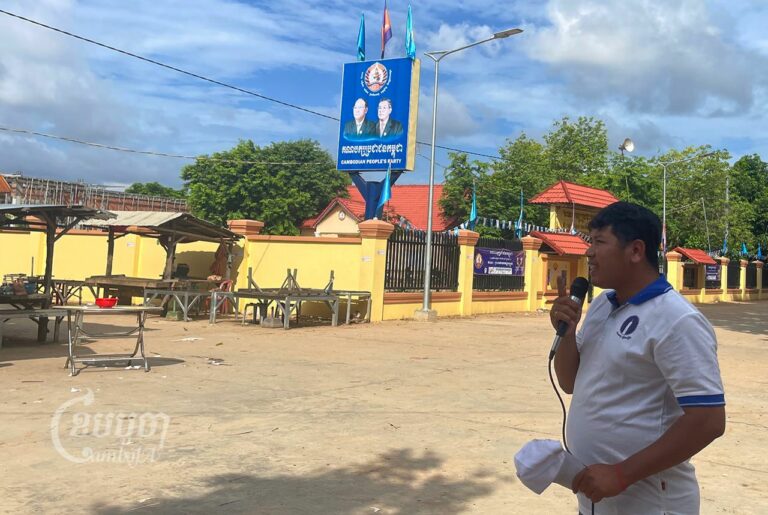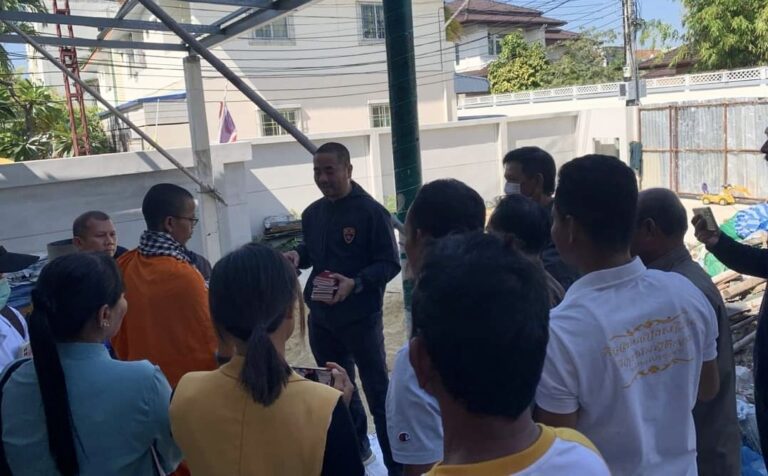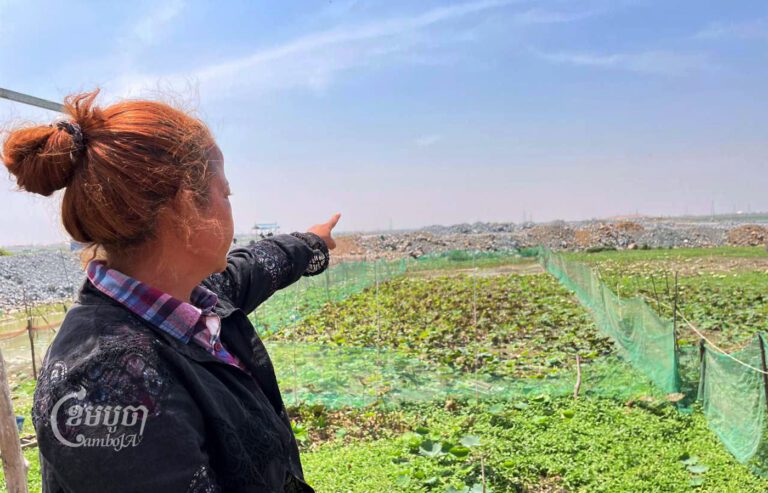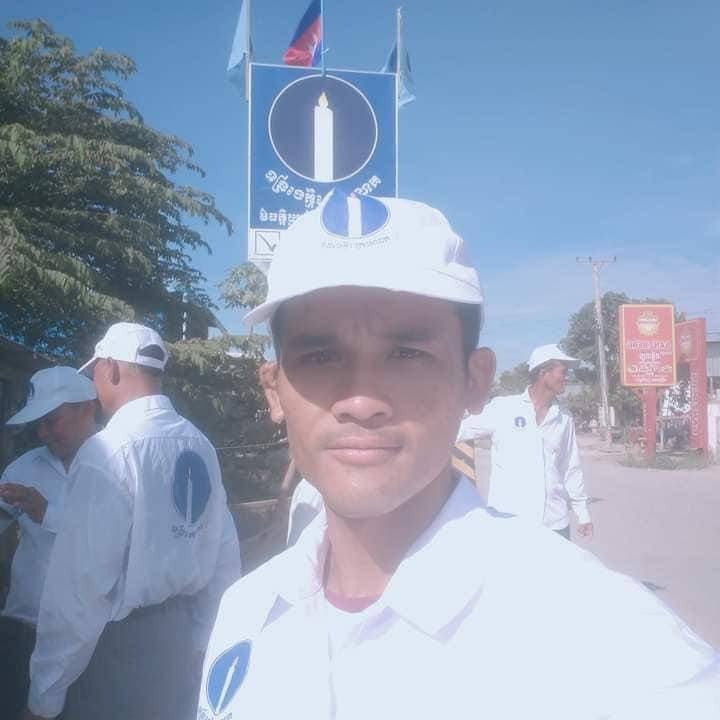Activist Kung Raiya is seeking political asylum in Thailand after he was handed a two-year sentence on charges of incitement for selling T-shirts bearing the image of slain political analyst Kem Ley last year.
The Phnom Penh Municipal Court on June 19 sentenced Raiya to two years in prison for incitement to commit a felony.
Municipal court spokesman Y Rin confirmed that that the court had sentenced the defendant, but did not provide details.
According to Raiya’s defense lawyer, Sam Sokong, Judge Uk Retkunthea had sentenced the activist to two years in prison, but Raiya has been in Thailand since his release on bail in December after spendingfour months and 18 days in jail.
The activist was arrested on July 9 last year in Phnom Penh, one day before he was due to attenda ceremony marking three years since prominent government critic Kem Ley was slain at a gas station cafe in the capital.
Speaking via Messenger on June 20, Raiya called his sentence “unreasonable and unjust”.
He expressed disappointment that the court had convicted him for incitement, as his only crime wasprinting T-shirts featuring the image and words of slain government critic Kem Ley.
“I think that it is unreasonable and it should not be happening in Cambodia,” he said from Thailand, where he had fled after his release on bail in December. “We just sold T-shirts bearing a picture of Dr. Kem Ley, who was a hero, but I was convicted.”
“I have fled Cambodia and I am now seeking political asylum in Thailand,” he said, adding that he had applied with the United Nations High Commission on Refugees (UNHCR), where he is awaiting a second interview.
“They enrolled me as a refugee in early February this year and I hope to receive the right of political asylum,” Raiya said.
“I decided to flee [Cambodia] because I have no freedom to express myself as an activist in society which is controlled by a single party, the ruling CPP,” Raiya said, adding that he would continue his work as an activist from abroad.
When asked if he was concerned that the Thai authorities would arrest and extraditehim, he was nonchalant.
“I have always done [these activities] but I am not very worried because I had already been imprisoned twice, and even if I was in jail more times it would not matter for me,” he said.
Raiya’s defense lawyer Sokong said that he will discuss with his client further before deciding whether to appeal.
“The current decision has not provided justice to my client because what he did was innocent. He just posted a T-shirt to sell online as part of his business,” he said.
“Printing T-shirts for business is a right of the citizens that is guaranteed in the Constitution, included under the freedom to express opinions,” Sokong said, adding that the court had no evidence besides the T-shirts.
Raiya was previously arrested in 2015 when he was still a university student over a Facebook post in which he had called for a “color revolution”. He was convicted in 2016 and sentenced to 18 months in jail on charges of incitement.
Am Sam Ath, deputy director of civil rights group Licadho, on Saturday said Raiya’s case was an example of the decliningstate of freedom of expression in Cambodia.
“It is an injustice that he was arrested just for printing and selling a T-shirt with the image of Kem Ley,” he said.
However, Justice Ministry spokesman Chin Malin said on June 20 that it is standard for civil society groups to have different views from the court and the government.
“There are different ways of thinking for each individual and for respective benefits,” he said.
He added that for example, even if someone has committed an illegal act, their family members will say the guilty party is innocent despite the court’s evidence.
“For Kung Raiya , he is now freed because he has completed his jail term,” Malin said. “In case he commits other offenses or provokes any chaos, he will be arrested by police and abide by the court’s ruling.”
Separately, family members of the 14 recently arrested members of the now-dissolved CNRP held a rally on June 19 in the front office of the United Nations Office of the High Commissioner for Human Rights (UNOHCHR) and the municipal court calling for the release of the 14.Allhave been charged in connection with an alleged plot led by former CNRP President Sam Rainsy to overthrow the government last year, though the arrests are widely seen as politically motivated.
“We asked the court to free them from prison because they have been victimized,” said Sok Polin, 64, the wife of Kim Phina, a former CNRP commune chief who was arrested April 2 in Phnom Penh’s Tuol Kork district after he shared a post on social media related to the Covid-19 pandemic. The arrests of Phina and several of the other CNRP activists were made to the fact they had spread “fake news” about the virus online.
“It is an injustice that the court has charged them with plotting a coup with Sam Rainsy,” she said at the rally, where the group had submitted a petition to the UNOHCHR. “Since the party was dissolved [in 2017] he has never joined any political activities, he has just stayed at home and is cultivating farmland.”
Regarding the gathering at UNOHCHR, Justice Ministry spokesman Malin said that citizens could demonstrate, but that it would not affect the court’s decision.
“It is their right, if they want to send a petition, but according to the law they have no right to order the court to release anyone or drop charges,” he said.
Malin advised them to submit a petition to “their boss outside the country since those [arrested] people followed an order to organize a plot for that hostile group,” he said, seemingly referring to exiled former opposition leader Rainsy.
Political analyst Em Sovannara said on June 20 that Cambodia has been pressured by the international community over the declining state of human rights and democracy since the dissolution or the CNRP, and they demanded Cambodia work to restore political freedoms.
“We saw there is no change, but more arrests of activists and former CNRP members, so I think it is not a good situation for the European Union [EU] to be able to give a positive assessment on human rights and democratic issues in Cambodia,” he said.
He said that Cambodia will soon face increased tariffs on goods sent to the EU after thebodyretracts part of the Everything But Arms trade agreement in August, on top of added economic pressure after the EU listed Cambodia as a high-risk nation for money-laundering.
“It is not a good result for Cambodia’s economy as well as development, and it isn’t a good sign of foreign affairs diplomatic if Cambodia has no response for changes that [the EU] has demanded,” Sovannara said.


